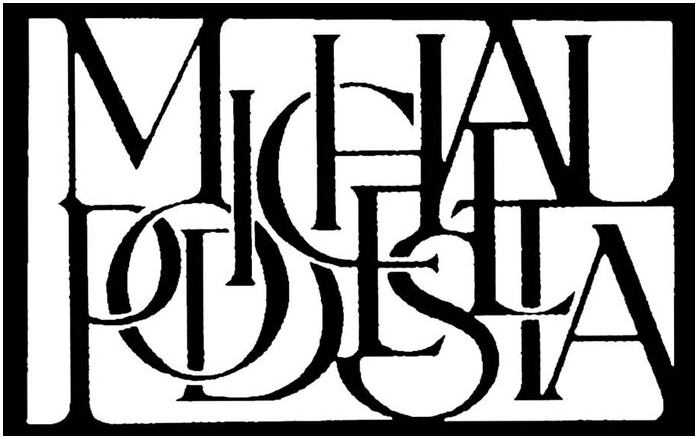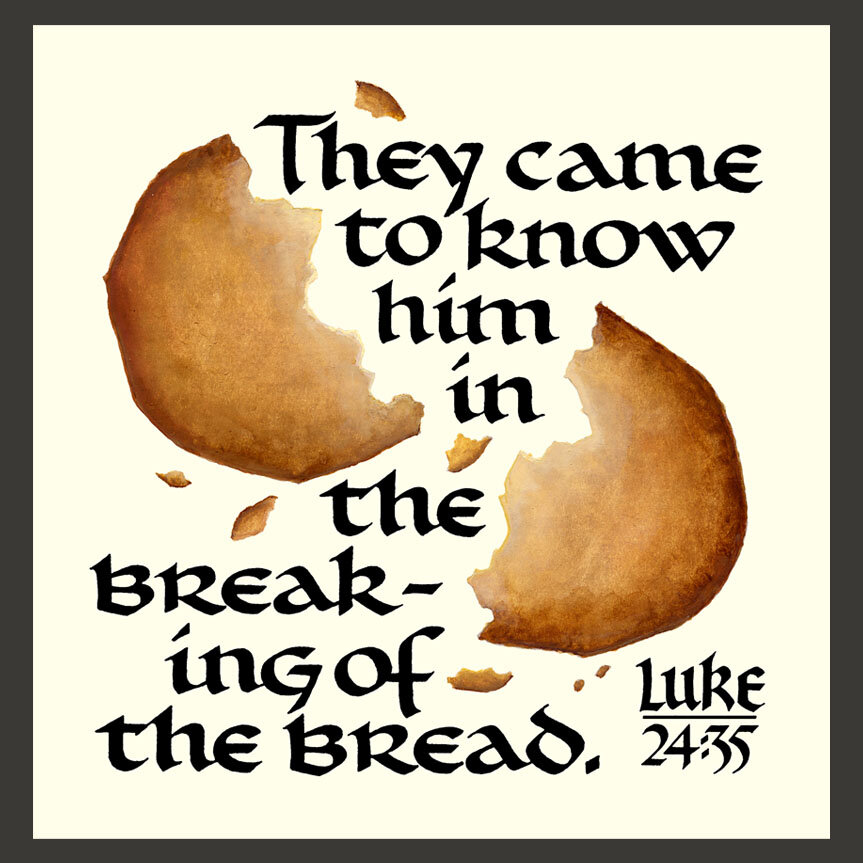Bread
They came to know him in the breaking of the bread.
Luke 24:35
They came to know him in the breaking of the bread.
Luke 24:35
They came to know him in the breaking of the bread.
Luke 24:35
Behind The Art
In early spring 1995 my sister, who works in the health care field, told me “You better come soon if you want a good visit with Mom.” She used the words “untreatable” and “weeks not months.” That is why I was in California that Easter.
Sara had warned me, “don’t be shocked when you see her. She’s lost a lot of weight. And it’s not like she had it to spare.” An odd detail that sticks in my mind: her earlobes showed no evidence of flesh. They were like little paper flower petals. Far stronger than this impression, though, is my memory of becoming, within less than ten minutes, quite unaware of the way the illness had altered her appearance. The reason, of course, was simply the great happiness we felt to be together. The subject that often comes to my mind at this point is the influence of the Spirit on our perceptions.
In the Gospel of John, Mary Magdalene is weeping at the empty tomb. “Where is He?” she asks the man she believes to be the gardener. Actually, it is Jesus, but somehow she doesn’t recognize Him. Then He speaks her name, “Mary”, and she knows Him at once.
In the Gospel of Luke, Jesus joins a group of his followers on the road to Emmaus and, like Mary, they are not aware of who He is. "You seem deeply troubled. What’s the matter?” He asks them. “What’s the matter?’ You mean you haven’t heard?” And they share their crisis, the arrest and execution of the one they had believed was the Savior. Then, addressing their feelings of abandonment and despair, Jesus gently reminds them of all the prophecies about the Messiah as revealed through Moses and the Prophets, how every promise had been fulfilled. “The plan for salvation is right on course,” He assures them. (Of course, He is talking about himself.) Evening comes, they stop at an inn and persuade Jesus to join them. He has spent most of the day with them, yet it is only when He breaks the bread that, with a shock of recognition, they suddenly realize who He is.
Finally, I want to refer to a simple story, one that is very familiar and very dear to many of us. It expresses an underlying truth that connects each of the above accounts: the visit with my mom as well as the two gospel narratives.
Saint-Exupéry has the Little prince saying “goodbye” to his friend the fox. “Goodbye,” says the fox. “And now here is my secret, a very simple secret: It is only with the heart that one can see rightly; what is essential is invisible to the eye.”
An etymological note: a companion is one you share bread with.
—Michael

